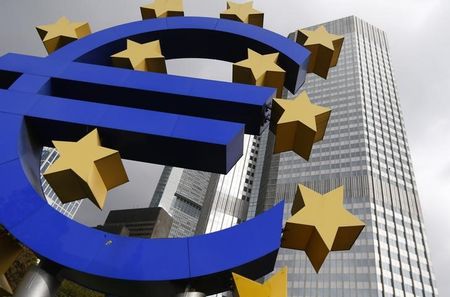By By, Jonathan and Cable
LONDON, Reuters - Euro zone business growth has been weaker than any forecaster expected this month and new orders have fallen for the first time in more than a year despite further price-cutting, a survey showed on Thursday.
Markit's Composite Flash Purchasing Managers' Index, based on surveys of thousands of companies and seen as a good growth indicator, fell to 51.4, missing even the lowest forecast in a Reuters poll.
"This is going to be a huge disappointment for the European Central Bank. This is the euro zone more or less just continuing to stagnate, a renewed downturn is an increasing likelihood," said Chris Williamson, survey compiler Markit's chief economist.
A PMI covering the dominant service industry also missed all predictions in the poll by falling to 51.3, while the factory PMI's dip to 50.4 missed the median forecast. However, they did hold above the 50 mark that separates growth from contraction.
Williamson said the PMI pointed to 0.1-0.2 percent GDP growth in the current quarter, compared with the 0.2 percent forecast in a Reuters poll taken last week.
Forward-looking economic indicators suggest the situation is unlikely to improve anytime soon.
The composite new orders index fell to 49.9, its first time below 50 since July 2013, and factories, who barely increased staffing levels, ran down old orders faster than last month - the related subindex fell to 48.3.
"It's signalling a downturn in demand, firms are eating into existing orders to maintain any growth. You would like to think with the measure the ECB has taken that you would see the numbers moving higher, but we're moving in the wrong direction," Williamson said.
Also of concern to the ECB, which is facing the spectre of deflation, service firms cut prices again. The subindex did rise to 46.9 from October's 56-month low but has remained firmly below the breakeven 50 mark since late 2011.
Prices rose just 0.4 percent in the euro zone in October, well below the ECB's target of close to but below 2 percent and
deep in what it terms the "danger zone".
To keep the euro zone from slipping into deflation, the ECB has been pumping money into the banking system by buying covered bonds and offering long-term loans, and a Reuters poll suggested there is now a 50-50 chance that it will take the plunge and

begin buying sovereign bonds.
(Editing by Hugh Lawson)